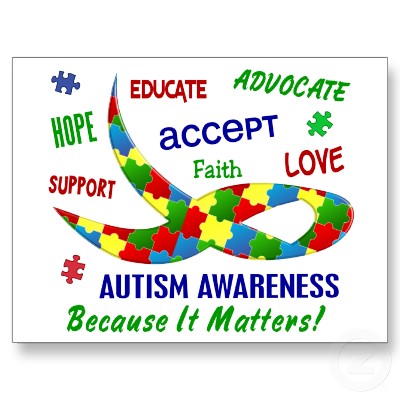By Tayo O
Over 1 million people in Nigeria live with autism today. If you are one of them or know someone who is/suspected to be, it is very important to have a diagnosis, educate people around you and most importantly, have or provide a great support system.
Two events in the last couple of weeks have inspired me to write on this topic. The first was Guarantee Trust Bank’s Orange Ribbon Initiative twitter campaign to increase awareness on Autism. Another was a conversation I had with an aunt who had just visited a family with an 18-year-old autisticperson. Born autistic, this person showed symptoms which seemed to have increased due to the biological changes brought by the teenage years. When he has one of his episodes, he would get really restless, and often attempt to pull out the television or the microwave. He is on medication to calm him down but on this occasion, he was on a new medication; one that his body was not accustomed to as yet and he would bang his head on surfaces, and throw tantrums. One can only imagine how difficult this is for his parents, his siblings and other people in his world. My aunt, prior to visiting this family, had never heard of autism before and I imagine many others like her as well.
Austism is thought to be a genetic, developmental condition with an unknown cause or cure. It is characterised by communication and social deficits, where children show delayed speech, spelling difficulty, retardation, difficulty in communicating and interaction, socially isolated etc. Autism falls under the group of neurodevelopmental disorders called the Autism Spectrum Disorders (ASD) and is closely linked to dyslexia, attention deficit hyperactivity disorder (ADHD) amongst others. Being a spectrum disease, the symptoms affect people in various ways – some may live independently and others may need constant unwavering support. There are a lot of famous ‘autistic’ people today; an example is Satoshi Tajiri, the brain behind Pokémon. It is also thought that the amazing Isaac Newton, Albert Einstein and even Bill Gates show signs of Asperger’s syndrome, another form of autism.
Over 1 million people in Nigeria live with autism today. If you are one of them or know someone who is/suspected to be, it is very important to have a diagnosis, educate people around you and most importantly, have or provide a great support system. There are a number of organisations that can help; some of them include Voice of Autism, Patrick Speech & Languages Centre, Lagos, Zamarr Institute for Autism, Abuja and lastly, this one makes me smile – Special Olympics Nigeria! Whilst researching on this topic, I came across this video. I hope you agree with me that we need to talk about autism in our world. We need to make people aware that it is NOT witchcraft. We need to show love to these children and their families. And above all, we need to equip our health service providers with tools that help autistic patients to cope better with the condition.
If you have an Autistic in your family, how have you been coping?
Do you know of any other organizations that help support Nigerian Autistics? Please share in the comments below.

[…] of Children, Tayo O writes about the horrors that parents of Autistic Children in Nigerian might face without a proper social […]
Autism is real although as a physician I haven’t diagnosed any maybe because I am not a pediatrician. One million Nigerians with autism, is this just a projection or based on actual data collection and surveillance?
I am a mother to an awesome young man who is on the autism spectrum.With a lot of bio-medical help and a holistic blend of therapies, he is well on his way to full recovery and currently attends a mainstream school with some support.
A lot can be done to help these kids but the first step is acceptance and love for the individual. I currently run an inclusive education school and provide holistic therapy services for children with developmental and learning challenges. This means that i meet and assess an average of 3-4 kids per week, with over twenty more already undergoing therapy. Beyond the several supplements, nutriceuticals and biomedical and other interventions, what works is usually an environment that is safe, caring, accepting and suited to the individual needs of a child.
I encourage parents to make their homes that environment, shower their kids with love and step by step take them through the path of endless possibilities. Its a marathon but we can begin with a first small step, believing that together with our kids, we can do all things through Christ that strenghtens us.